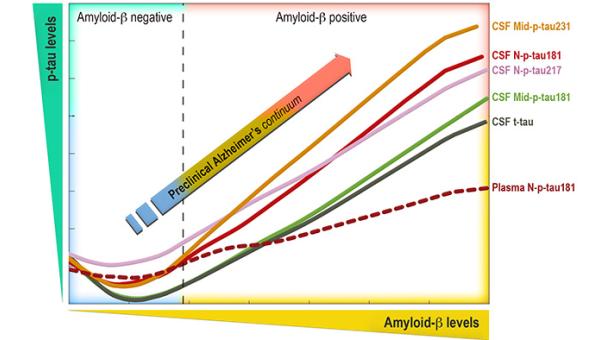News:Research and scientific results
Read the latest news about research and scientific resultats on Alzheimer's disease at the Barcelonaβeta Brain Research Center (BBRC).
The United States approves the commercialization of a drug that could slow down Alzheimer's disease
The last drug approved by the FDA was in 2003, and until now any treatment has proved to slow down the progression of the disease.
BBRC researchers discovered new benefits of blue fish consumption in people at risk of developing Alzheimer's disease
A study led by the BBRC has found that people without cognitive problems but with a higher genetic risk of developing Alzheimer's have certain areas of the brain more resilient to the disease if they are accustomed to consuming a nutrient provided by blue fish.
European researchers improve the sensitivity to detect the early stages of Alzheimer's disease
A team of researchers from the AMYPAD consortium, led at BBRC, showed that the visual assessment used in clinical practice to evaluate amyloid PET images is sensitive to detecting the earliest stages of Alzheimer’s disease, and suggests a method to classify the extent of the pathology in the brain.
Spanish scientists uncover early links between cardiovascular risk and brain metabolism
Investigators at the CNIC, in partnership with the BBRC, have discovered a link between brain metabolism, cardiovascular risk, and atherosclerosis during middle age, years before symptoms appear
José Luis Molinuevo has been named on the Highly Cited Researchers 2020 list
The scientific publications of the promoter of the BBRC Alzheimer's Prevention Program are among the 1% of the most cited in its field in Web of Science.
BBRC researchers identify new tau biomarkers to detect the preclinical phase of Alzheimer's disease
An international team of researchers, led at the BBRC, has discovered that a series of biomarkers recently described to detect the most advanced phase of Alzheimer's can also detect the preclinical phase of the disease in the cerebrospinal fluid and plasma.
Avalanche of data against Alzheimer's
The digitization of the data collected in our studies allows us to accelerate our research, improve its integrity and make it available to researchers around the world.
Stance of the Pasqual Maragall Foundation on World Alzheimer's Day 2020
Discover #undíaparaolvidar
The FDA accepts license application for aducanumab, the first possible disease modifying drug for Alzheimer’s
Dr José Luis Molinuevo comments the possible approval of Biogen’s new treatment, in an interview for the podcast Saving Minds.


















